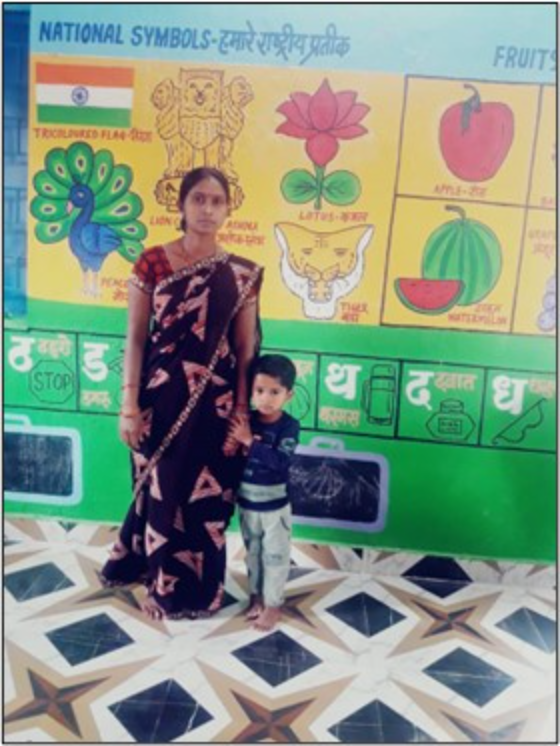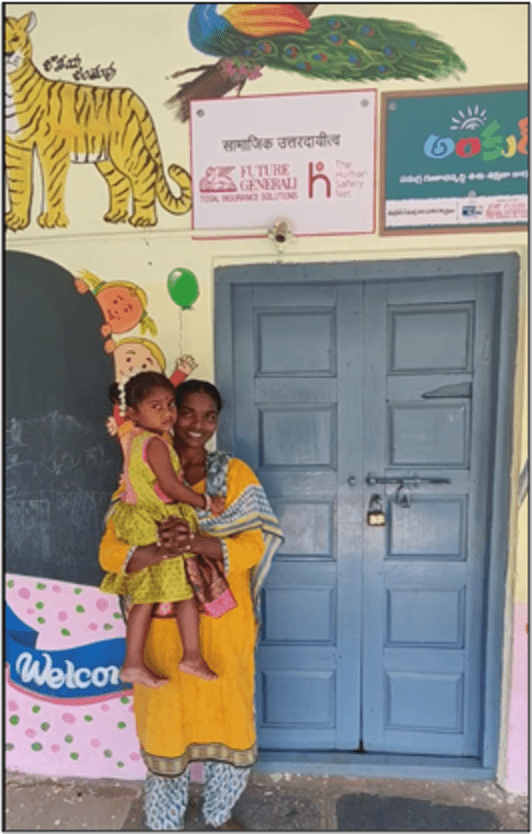After the centre was renovated as my child was not used to going to the centre in the earlier weeks, he was not ready to be alone in the centre and wanted me beside him every time.
Since the infrastructural upgradation […] like repairing the walls, painting wall Murals, and providing learning toys in our Anganwadi Centre. I make it a point to send my child every day to the centre.
.jpg/lang:en/Saraswati_Devi_(1).jpg)
Anganwadis are rural childcare centres critical to the Indian government's Integrated Child Development Services. Anganwadis were launched in 1975 to combat child hunger and malnutrition, amongst other things.
The project has expanded in 2020 with an additional 17 childcare centres, 24 childcare centres in 2021, and 18 childcare centres in 2022. Now, our initiative is aiming at changing the lives of 2500 children in the upcoming years. This expansion has taken the initiative into the states of Jharkhand and Telangana, while the first Anganwadi projects were in Maharashtra, in the Panvel & Karjat regions.
Saraswati Devi is the mother of three-and-a-half-year-old Aman Rajak; they live in the village of Harijan Tola in Jharkhand. Little Aman was not going to the local Anganwadi as it was in terrible conditions. After the refurbishment, the mother sent him to the Centre, albeit with some adjustment period for the three-and-a-half years old.

Saraswati also says that the project facilitator built an excellent rapport with her child and the whole group of children frequenting the Centre. Thanks to all this effort, little Aman is learning in the Anganwadi. He started recognising objects and shapes since he joined the Centre.
Since our project installed a solar power system in Little Aman's Anganwadi centre, the kids can now learn with proper lighting and ventilation.
The Education Facilitator, Ms. Usha, has built a strong relationship with all the children. They teach numbers the letters to children through action songs, wall murals. She even helps the children to ensure they eat the whole meal provided at the centre.
Tansi's cognitive capacity is increasing. She now recognises parts of the body and vegetables in English and Telugu. Srisha is very proud when her kid comes home and shares everything she learned at the Centre.


